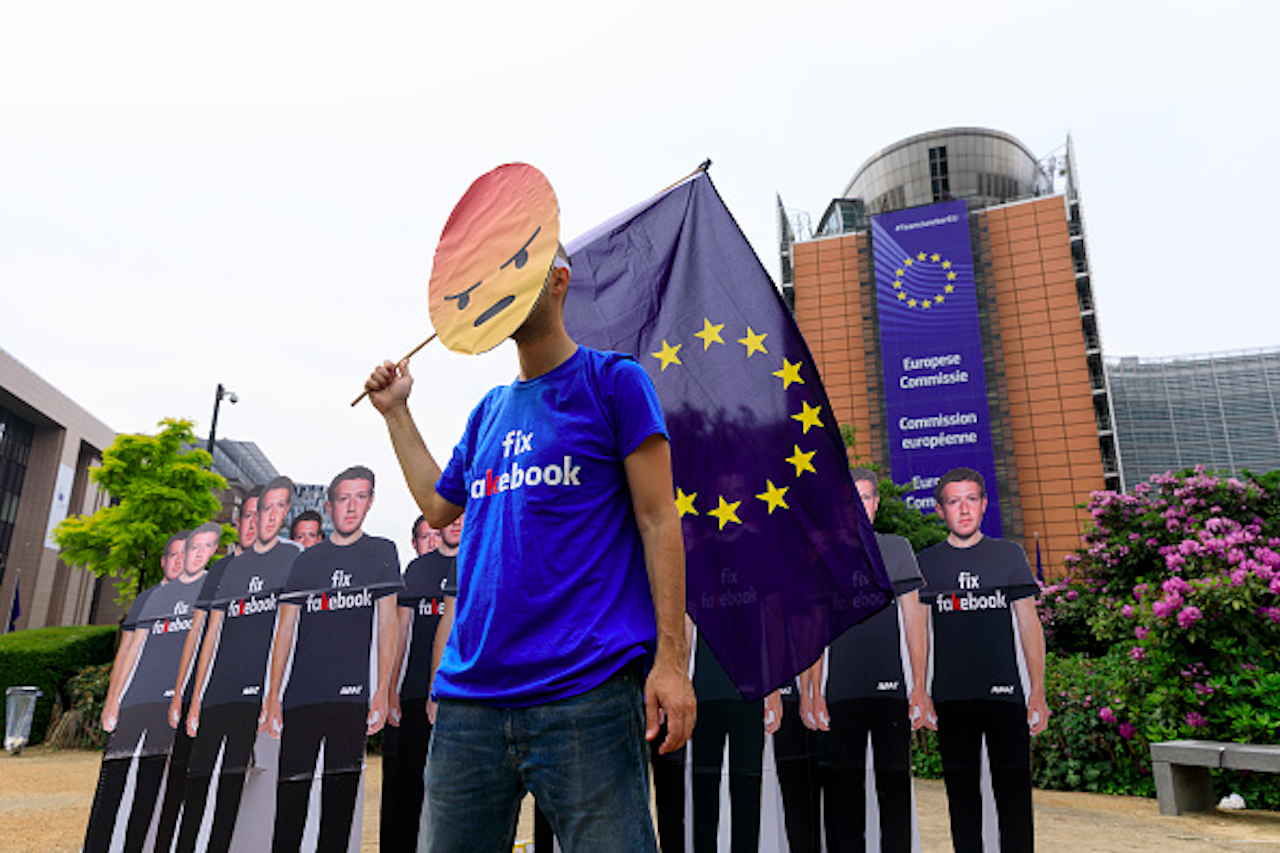Mark Zuckerberg’s Tuesday meeting with European Parliament was a hot mess, to say the least. Though he was there to discuss Facebook’s many scandals and screw-ups (including, but not limited to, Cambridge Analytica), the meeting nearly verged into scandal territory itself. Lawmakers criticized Facebook for almost an hour, Zuckerberg let it slip that Facebook is not planning on deleting all the data it has on non-Facebook users, and the whole affair ended dramatically, with multiple Members of Parliament (MEPs) yelling at Zuckerberg, calling him out on his evasiveness. At one point, a lawmaker interrupted Zuck mid-monologue, shouting “Shadow profiles! Shadow profiles!” (in reference to the data collected on non-Facebook users) from across the room in a desperate attempt to get him to address literally anything of relevance.
Soon others joined in, shouting out their unanswered questions. Zuck appeared caught off-guard for a minute, filling the air with some “um”s and “uh”s before landing back on the barely relevant talking point of Facebook’s Clear History feature, which allows Facebook users to clear some of the data collected on them, but isn’t available for the non-Facebook users whose data has been collected and held in so-called “shadow profiles.”
Eventually one of the lawmakers interrupted him, asking point-blank: “But if you're not a Facebook user, how do you stop that data from being transferred?” (i.e., sent to and used by Facebook). Zuck gave an actual answer to this question: “On a security side, we think it’s important to keep it” — “it” being the data on non-Facebook users — “in order to protect people in our community.” Meaning, the only real option available for non-Facebook users who want to take their data back from Facebook is to, well, join Facebook so they can use the “Clear History” feature.
With the official enforcement date for the EU’s General Data Protection Regulation (GDPR) right around the corner — not to mention European lawmakers’ general disdain for Facebook and its ilk — it seemed as if the stars were finally aligned for Zuck’s Final Reckoning. After all, the MEPs present had no reason to wax poetic about his accomplishments as an American entrepreneur, like U.S. Congressmen did. And as proponents of the GDPR, they’re inherently at least somewhat knowledgeable about how Facebook and the internet at large works.
The questions posed by European lawmakers were impressive, delicately-worded, and almost delightfully thorough. “Could you or would you cooperate with the European antitrust authorities … and to open your books to see, yes or no, if there is a monopoly?” asked Guy Verhofstadt, leader of the Alliance of Liberals and Democrats for Europe. Diane Dodds of Ireland’s Democratic Unionist Party asked Zuck to provide specific examples about what Facebook is doing to stem the “the rise of fake accounts which often target young and vulnerable people.” Philippe Lamberts, Co-Chair of the Greens/European Free Alliance asked six pointed yes or no questions on a range of issues including whether Facebook will offer users a way to opt out of targeted advertising, Facebook’s status as a media company, and implored Zuck to release information on the company’s daily operations. Claude Moraes, a British MEP and chair of the civil liberties committee even honed in on one of the company’s biggest issues when it comes to providing European citizens with their complete data files: “The GDPR gives individuals the right to access and verify all of the data a company holds on them. And that includes not just their profiles — which I believe was mentioned by another colleague — but also their marketing profiles data that was not just disclosed by the user but was interpreted by their behavior. Are you really going to give users full access to their marketing profiles? Are you going to complete all of the steps in GDPR?”
Each MEP was allotted three minutes to fire off as many questions as possible. However, when each finished, Zuckerberg wasn’t given time to answer. Instead, he merely took notes before the next MEP was given a turn to speak.
After an hour of one-sided grilling, in lieu of answering any of the questions Zuckerberg had been asked, he launched into a spiel with vague mentions of AI and carefully-rehearsed apologies, a summary of Facebook-official PR announcements, his own 3,000 word Facebook post pontifications, and the US Congressional hearings. Rather than nod and accept, multiple lawmakers calling Zuck out for his evasive behavior. “I asked you six yes or no questions; I didn't get a single answer,” said Lamberts. “Of course you asked for this format for a reason.“ Zuckerberg, of course, didn’t really have much to say in response other than his standby: "I'll make sure we follow up and get you answers to those."
